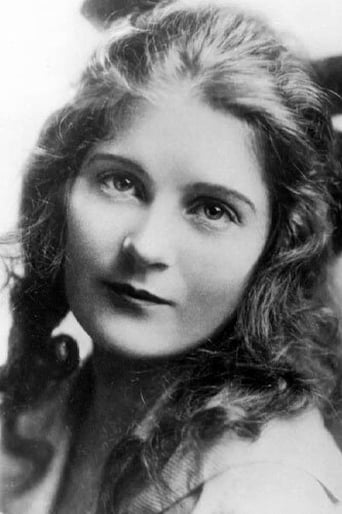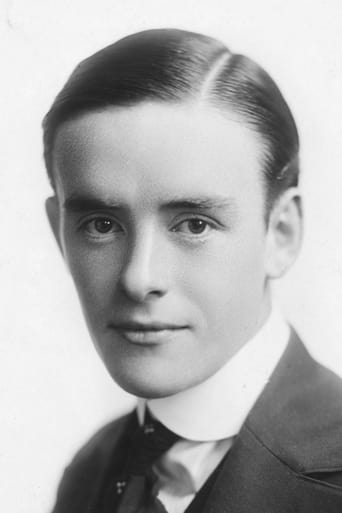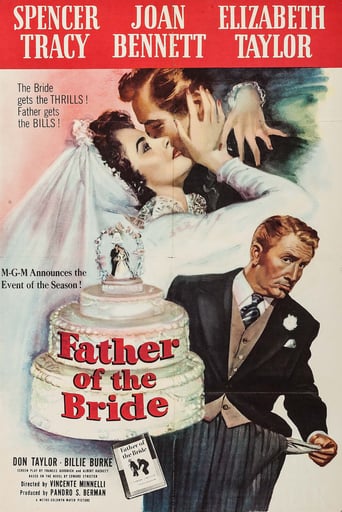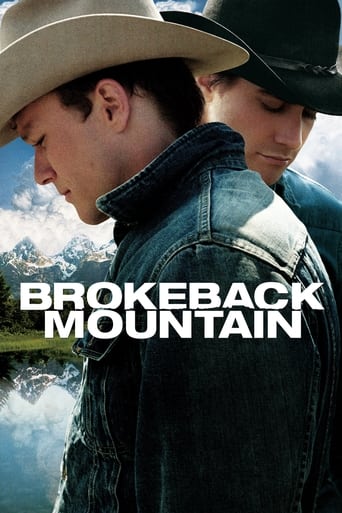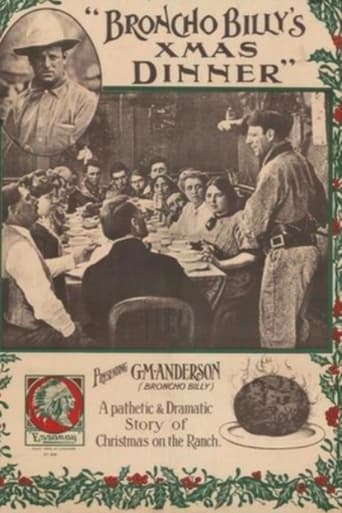
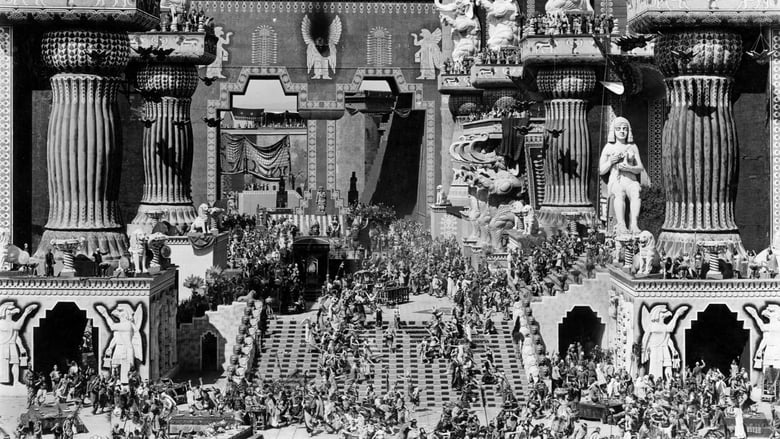
Intolerance: Love's Struggle Throughout the Ages (1916)
The story of a poor young woman, separated by prejudice from her husband and baby, is interwoven with tales of intolerance from throughout history.
Watch Trailer
Cast


Similar titles
Reviews
Having gotten criticized for the 'racist' content in his magnificent "Birth of a Nation", D. W. Griffith decided he was gonna show his audiences a thing or two. Thus, "Intolerance: A Sun Play of the Ages" was inspired. This amazing 3-hour 17-minute drama tells the story of humanity's intolerance throughout the ages, as demonstrated by 4 different stories: the Christ story, the fall of the Babylonian empire, the Renaissance French story, and the present, main story set at the time of the filmmaking. The Christ story is the shortest, at only about 15 or so minutes, the Renaissance story the second shortest, and the modern story and the fall of Babylon being the two longest.While this is extremely ambitious for 1916, and is mostly successful, there are some points to be made here. First of all, (and this could just be my problem) parts of this were confusing to me. This may be because I wasn't very familiar with some of the history: I was of course familiar with the Christ story, understanding the details of it, but the Renaissance French story got off slowly and had its confusing moments. The Babylonian story I needed some insight on, but after that I understood most of it. There are so, so, so, soooooooo many characters that it is difficult to understand who is who and such. The Boy, and the Dear One (in the modern story) stood out for me, but as for the Friendless One, she came out of nowhere in the story and became significant later on. There were various sexually harassing men and all these other people. It is very, very complex--not to be missed but at the same time, confusing if you aren't entirely familiar with the history.Now, let's get on to the details. Amazing sets, first of all--the sets in the Judean story and the sets in Babylon. Griffith was a real showoff--and in a good way. There's this amazing statue of Ishtar, the Babylonian goddess, which is simply amazing and looks as though it was made of stone (is it?) Later on in the Babylon sequence, there are these amazing moving camera shots of the Babylonian palace. The costumes too--amazing. This is as close as you're going to get to traveling back to old Babylon. Put together, this story looks amazing (though the fighting with the Persians scene went on a little too long). Plus, tons of actors--like, a couple thousand alone. It is all visually impressive and is truly a masterpiece.Something I've noticed the other reviewers have been saying here is that the story of Christ and the French Renaissance story could be taken out and are completely unnecessary. I disagree. Despite the fact the Babylonian and Modern stories have received the most attention, I found the other two interesting as well. The beautiful green tint of the french story was a joy to watch, and I also loved the way they portrayed De Medici--an intolerant idiot. The costumes of the same story I also thought looked cool. The Christ story--well, it wasn't detailed enough and barely only 15 minutes. They show a couple of his miracles and then cut to shots of him carrying the cross, and then there he is on it. Simply not enough, but it looked good for what was there.The shots of the woman rocking the cradle (sometimes taken from farther away, sometimes closer) are symbolic of Eternal Motherhood. They serve to link together the various episodes, and it is a very interesting way to do so. Lillian Gish, who acted in "Birth of a Nation" plays this role and while you never see her close up, her role may be the most important in all the film."Intolerance" is the sort of film which you get more and more out of every time you view it. Despite its length, I'm sure this isn't the only time I will be watching it. Because of the fact it is one of the greatest masterpieces of the era, (or maybe of all time???) it is not to be missed by ANYBODY. The message. the story...it's all stupendous. Worth 3 hours...really.
In 1915, D.W. Griffith's gave birth to modern cinema with "The Birth of a Nation", a giant leap that proved the remaining skeptics that the 20th century wouldn't do without the reel, that there was a time for Chaplin's gesticulations and a time for serious storytelling. Of course, Chaplin's contribution is more valuable because he understood the universality of cinema more than any other filmmaker, let alone Griffith who made his film culminate with the glorification of the KKK. ¨People from all over the world would rather relate to the little tramp than any Griffith's character, but as I said in my "Birth of a Nation" review, without that seminal film, there wouldn't even be movies to contradict it.And D.W. Griffith was actually the first to do so by making a humanistic anthology named "Intolerance: Love's Struggle Through the Ages", a three-hour epic relating four separate stories set at different historical times, but all converging toward the same hymn to intolerance, or denunciation of intolerance's effect through four major storylines: the fall of Babylon, the crucifixion of the Christ, the Bartholomew Day massacre and a contemporary tale with odd modern resonances. The four stories overlap throughout the film, punctuated with the same leitmotif of a mother "endless rocking the cradle", as to suggest the timeless and universal importance of the film. The mother is played by an unrecognizable Lillian Gish but it's not exactly a film that invites you to admire acting, the project is so big, so ambitious on a simple intellectual level that it transcends every cinematic notion. It is really a unique case described as the only cinematic fugue (a word used for music), one of these films so dizzying in their grandeur that you want to focus on the achievements rather than the shortcomings, just like "Gone With the Wind" or more recently "Avatar". Each of the four stories would have been great and cinematically appealing in its own right, Griffith dares to tell the four of them using his trademark instinct for editing. Technically, it works.And while I'm not surprised that he could pull such a stunt since he had already pushed the envelope in 1915, bmaking this "Intolerance" only one year after "The Birth of Nation" is baffling, especially since it was meant as an answer to the backlash he suffered from, it's obvious it wasn't pre-planned, so how he could make this in less than a year is extraordinary. I can't imagine how he got all these extras (three thousands), the recreations of ancient Babylon, of 16th century France, and still have time for a real story, but maybe that's revealing how eager he was to show that he wasn't the bigoted monster everyone accused him of, as if the scale of his sincerity had to be measured in terms of cinematic zeal. That the film flopped can even play as a sort of redemption in Griffith's professional arc.But after the first hour, we kind of get the big picture and we understand that Griffith tells it like he means it. It works so well that the American Film Institute replaced the "Birth of a Nation" from the AFI Top 100 with "Intolerance" in the 10th anniversary update. But after watching the two of them, I believe they both belonged to the list as they're the two ideological sides of the same coin. But if one had to be kept, it would be the infamous rather than the famous, if only because the former is more 'enjoyable' in the sense that there's never a dull moment where you feel tempted to skip to another part. "Intolerance" had one titular key word: struggle, I struggled to get to the end, and even then, I had to watch it again because I couldn't stay focused. Indeed, what a challenging movie patience-wise!This is a real orgy of set decorations that kind of loses its appeal near the second act, and while the first modern story is interesting because you can tell Griffith wanted to highlight the hypocrisy of our world's virtue posers, who try to make up for the very troubles they cause and use money for the most lamentable schemes, it might be too demanding to plug your mind to so many different stories. And when the climax starts with its collection of outbursts of violence, I felt grateful for finally rewarding my patience than enjoying the thrills themselves, especially since it doesn't hold up as well as the climactic sequence of "The Birth of a Nation". Or maybe we lost the attention span when it comes to silent movies, but there must be a reason the film flopped even at its time, maybe the abundance of notes and cardboards that makes the film look like a literary more than visual experience?I guess "Intolerance" can be enjoyed sequence by sequence, by making as many halts as possible in that epic journey, but it's difficult to render a negative judgment for such a heavy loaded film. For my part, I'm glad I could finally watch and review all the movies from the American Film Institute's Top 100 and I appreciate its personal aspect in Griffith's career. Perhaps what the film does the best is to say more about the man than the director. His insistence on never giving names to his characters ("The Boy", "The Dear Guy"...) calling a mobster a "Musketeer" and all that vocabulary reveal his traditional and sentimental view of America, and maybe the rest of the world. That's might be Griffith's more ironic trait, so modern on the field of technical film-making yet so old-fashioned in his vision, he's one hell of a storyteller and he handles the universal and historical approach of his film like a master, but when it comes to his personal vision, he struck me as the illustration of his own metaphor, like a good mother-figure endlessly rocking our cradle.
This has to be the worst movie ever made for a multitude of reasons and should not be watched by anyone who has any self respect. Nothing can redeem this film, not historical context, not the supposed innovations that came from it, and definitely not the story. Save yourself 3 plus hours of the worst film in history and watch better silent era films.
Intolerance has been sometimes referred to as the Greatest film of all times. This is in my view an exaggeration, but Intolerance is definitely a milestone in cinema history.It is quite unique in its combination of five different stories only linked by their common reference to the theme of intolerance. 1) a contemporary melodrama showing how charities can be led by selfish motives and can have disastrous consequences; 2) the passion of Jesus Christ in Judea; 3) the events surrounding the 1573 St Bartholomew's Day massacre in France (substantial parts of this segment are lost), 4) the fall of the Babylonian Empire to Persia, 5) a pacifist epilogue showing the war raging at the time in Europe grinding to a halt with soldiers fraternizing, flowery fields blooming and children playing among abandoned canons. This pacifist message must be put back in the context of the discussions going on in America at the time about joining the war.Maybe because of this pacifist message just before the decision to go to war, Intolerance was released in September 1916 and the United States declared war to Germany in April 1917, maybe because the form of the film was too much ahead of its time with its distinct stories running in parallel, the film was a commercial failure; it could not recover the enormous production costs, particularly for the Babylonian segment.a-cinema-history.blogspot.com/2013/11



